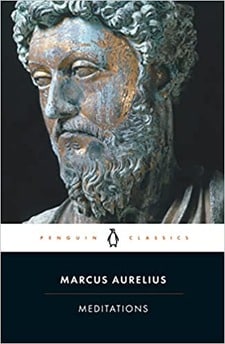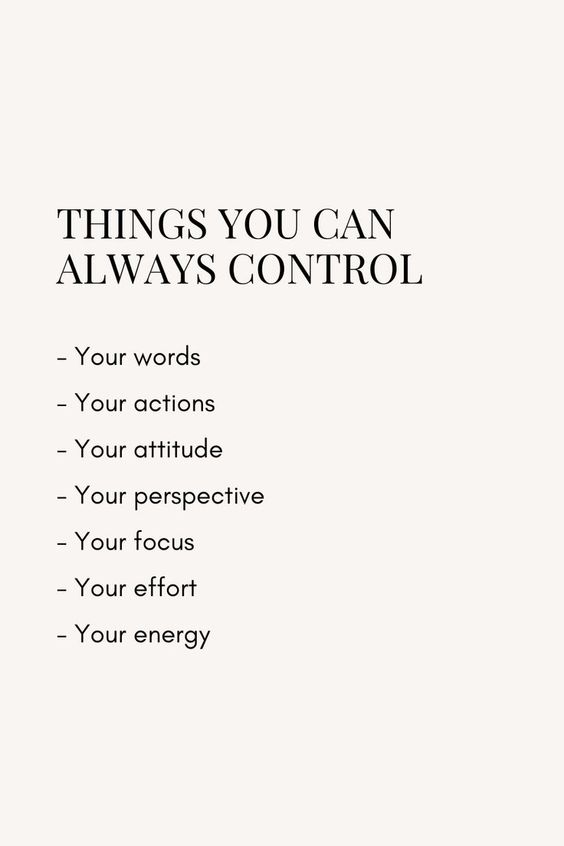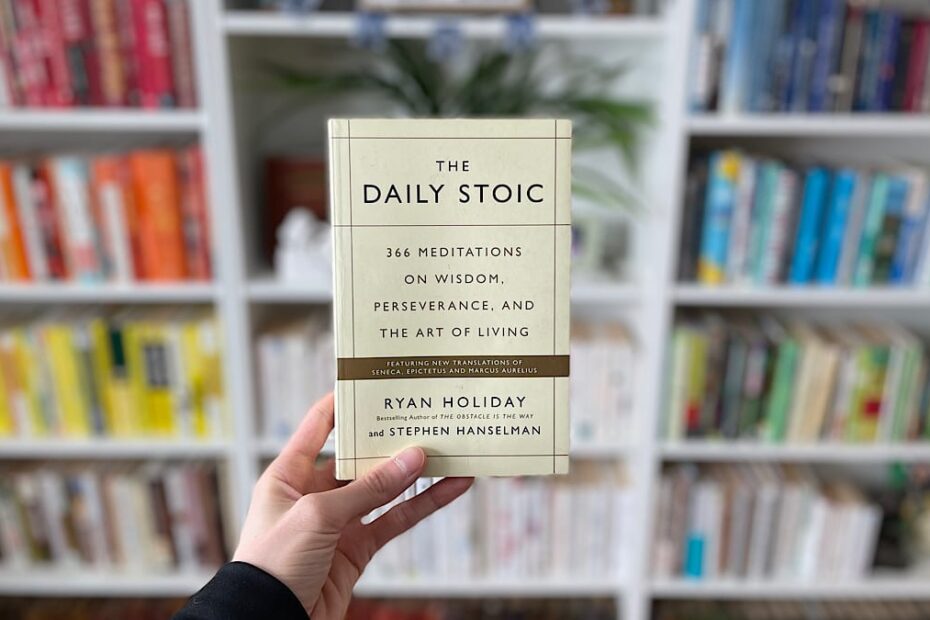“In order to keep their minds virtuous, the Stoics practiced something like negative visualization: They imagined the worst thing that could happen in order to be prepared if certain privileges and pleasures were taken from them.”
Héctor García and Francesc Miralles, Ikigai (Page 168)
Most don’t even realize they are.

“Stoicism is not just invulnerability…if such a thing even exists. Stoicism is also having the self-awareness to know when you are struggling. It’s having the courage to admit when you could use a hand. It’s having the wisdom not to pretend you know the answer (you can’t learn that which you think you already know, Epictetus says). It takes daring and toughness to go to therapy—perhaps more than just white knuckling it. It’s a brave thing to share your struggles with a friend or to hire a coach or expert to help you get better at something. It takes a confident person to ask a question or admit, ‘I don’t know.’ Don’t be like the cowards who are too fragile or fearful to do this. Be truly courageous.”
Ryan Holiday
“[Stoicism] is not a philosophy for the weak or the cowardly. Stoicism is about facing the truth, about thinking about the unthinkable. Not just as it’s happening, but long before. Keep all the possibilities before you, including—especially—the bad ones. Keep your eyes open. Beware.Think it. Because you might be able to prevent it. And if you can’t, at least you’ll be able to handle the reality of its existence and then respond to it accordingly.”
Ryan Holiday
“A Stoic is not a scold. Nor are they a tyrant. We are strict with ourselves, tolerant with others. Our discipline is our discipline, as it should be. Our own struggles should keep us busy enough that we shouldn’t even consider getting up in other people’s business to fix theirs. Instead let’s meet others where they are, accept and love them as they are. Because anything else is outside our control.”
Ryan Holiday, Daily Stoic Blog
“You might think that the Stoics were these unfeeling people…But that’s actually not true at all…Marcus Aurelius said that he learned from one of his mentors to be free of passions but full of love. If you want to feel good, if you want to be loved by other people, it’s about what you put out in the world…Because ultimately that’s what you control. If you want to feel better, don’t go expecting other people to validate you or to give you what you want. Give what you want. Marcus says if you want to feel good, do good. See everyone you meet, as Seneca said, as an opportunity to practice kindness. And the rest will take care of itself.”
Ryan Holiday
Meditations [Book]

Book Overview: Written in Greek by an intellectual Roman emperor without any intention of publication, the Meditations of Marcus Aurelius offer a wide range of fascinating spiritual reflections and exercises developed as the leader struggled to understand himself and make sense of the universe. Spanning from doubt and despair to conviction and exaltation, they cover such diverse topics as the question of virtue, human rationality, the nature of the gods and the values of leadership. But while the Meditations were composed to provide personal consolation, in developing his beliefs Marcus also created one of the greatest of all works of philosophy: a series of wise and practical aphorisms that have been consulted and admired by statesmen, thinkers and ordinary readers for almost two thousand years.
“Our circumstances can be unfair, unjust, unexpected. Yet? This doesn’t absolve us of needing to figure out how to navigate them, make good use of them. Seneca could not change the fact of his exile…but he could transform it. The same is true for us. Whatever life hands us or a tyrant hands down for us, we have to make it right. We have to create justice and progress and good from it. It’s unfair, but it is fate. We can turn this misfortune into a better future. It is the only way forward.”
Ryan Holiday, Daily Stoic Blog
“Life throws stuff at us. We have to figure out how to catch it and throw it back. That’s what Epictetus meant when he said we don’t control what happens, we control how we respond. But he also liked that throwing metaphor–and clearly was more than a casual fan of sports. Epictetus admired the way that skilled athletes caught the ball that was thrown to them and whipped the ball right back. They didn’t complain. They didn’t demand certain conditions be met before they dove for it. He admired their concentration, their coolness under pressure, their grace, their creativity.”
Ryan Holiday, Daily Stoic Blog
“It’s OK to cry. When Marcus’ [Aurelius] tutor died, he cried uncontrollably. He wouldn’t allow anyone to try to calm him down or remind him of the need for a prince to maintain his composure. ‘Neither philosophy nor empire,’ Marcus’s stepfather Antoninus said, ‘takes away natural feeling.’ The same goes for you. No matter how much philosophy you’ve read. No matter how much older you’ve gotten or how important your position or how many eyes are on you. It’s OK to cry. You’re only human. It’s okay to act like one.”
Ryan Holiday, Daily Stoic Blog
26 Seneca Quotes from The Daily Stoic on Vices, Virtues, and Fulfillment
Excerpt: These Seneca quotes from The Daily Stoic offer timeless wisdom for better living. Wisdom that, when applied, can become a “ruler” for life…
Read More »26 Seneca Quotes from The Daily Stoic on Vices, Virtues, and Fulfillment
The Daily Stoic [Book]
![The Daily Stoic by Ryan Holiday [Book]](https://movemequotes.com/wp-content/uploads/2022/01/daily-stoic.jpeg)
Book Overview: Why have history’s greatest minds—from George Washington to Frederick the Great to Ralph Waldo Emerson, along with today’s top performers from Super Bowl-winning football coaches to CEOs and celebrities—embraced the wisdom of the ancient Stoics? Because they realize that the most valuable wisdom is timeless and that philosophy is for living a better life, not a classroom exercise.
The Daily Stoic offers 366 days of Stoic insights and exercises, featuring all-new translations from the Emperor Marcus Aurelius, the playwright Seneca, or slave-turned-philosopher Epictetus, as well as lesser-known luminaries like Zeno, Cleanthes, and Musonius Rufus. Every day of the year you’ll find one of their pithy, powerful quotations, as well as historical anecdotes, provocative commentary, and a helpful glossary of Greek terms.
By following these teachings over the course of a year (and, indeed, for years to come) you’ll find the serenity, self-knowledge, and resilience you need to live well.
Post(s) Inspired by this Book:
26 Seneca Quotes from The Daily Stoic on Vices, Virtues, and Fulfillment
“Something happened that we wish had not. Which of these is easiest to change: our opinion or the event that is past? The answer is obvious. Accept what happened and change your wish that it had not happened. Stoicism calls this the ‘art of acquiescence’—to accept rather than fight every little thing.”
Ryan Holiday, The Daily Stoic (Page 326)
“The Stoic does two things when encountering hatred or ill opinion in others. They ask: Is this opinion inside my control? If there is a chance for influence or change, they take it. But if there isn’t, they accept this person as they are (and never hate a hater). Our job is tough enough already. We don’t have time to think about what other people are thinking, even if it’s about us.”
Ryan Holiday, The Daily Stoic (Page 279)
“Men, the philosopher’s lecture-hall is a hospital—you shouldn’t walk out of it feeling pleasure, but pain, for you aren’t well when you enter it.”
Epictetus, via The Daily Stoic (Page 264)
“Some people are sharp and others dull; some are raised in a better environment, others in worse, the latter, having inferior habits and nurture, will require more by way of proof and careful instruction to master these teachings and to be formed by them—in the same way that bodies in a bad state must be given a great deal of care when perfect health is sought.”
Musonius Rufus, via The Daily Stoic (Page 225)
“Stoics do not seek to have the answer for every question or a plan for every contingency. Yet they’re also not worried. Why? Because they have confidence that they’ll be able to adapt and change with the circumstances. Instead of looking for instruction, they cultivate skills like creativity, independence, self-confidence, ingenuity, and the ability to problem solve. In this way, they are resilient instead of rigid. We can practice the same.”
Ryan Holiday, The Daily Stoic (Page 178)

